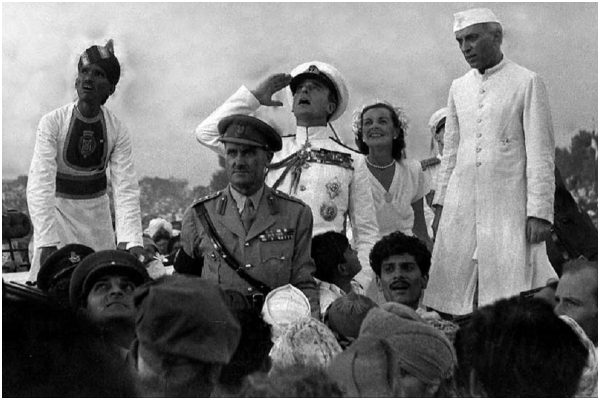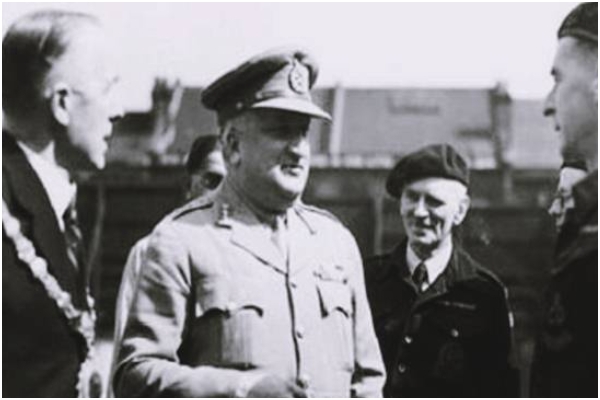Mountbatten’s letter on 27 Oct 1947- 'Lawyer to Separatist'
Mountbatten implicitly mentioned Nehru in his reply without naming him directly.
Total Views |
Who is “My Government” in Mountbatten’s letter on 27 Oct 1947?
As per the Indian Independence Act 1947 and Government of India Act 1935, head of any Princely state was the only authority to take decision regarding accession to Dominion of India or Pakistan. Maharaja Hari Singh was the head of Princely state of Jammu and Kashmir. He signed Instrument of accession on 26th Oct 1947. The Instrument of Accession signed by Maharaja Hari Singh was no different from the Instrument of Accession designed by Lord Mountbatten to be used by nearly 550 + Princely States outside British India.

Along with Instrument of Accession, Maharaja Hari Singh wrote a separate letter to Lord Mountbatten briefing him about the prevailing situation in JnK. In his letter, Maharaja clearly mentions that Afridis and Pakistani Soldiers in plain clothes and Desperados with modern weapons have been allowed to infiltrate the state. In his letter Maharaja also mentions that the mass infiltration with up to date weapons cannot be done without knowledge of provincial government of NWFP and Government of Pakistan. Thus, Maharaja specifically accuses Pakistan as the aggressor in first war between India and Pakistan.
Further in the letter, Maharaja claims that the people of the state, both Hindus and Muslims generally have taken no part at all. It is very critical to note that, Maharaja does not even mildly hint the disapproval of the state subject in joining the Dominion of India. Neither Maharaja mentions in his letter any local dispute or dissent in joining Dominion of India.
Thus, in totality the accession of JnK was legal, legitimate and willful and in line with provisions of Indian Independence Act 1947 and Government of India act 1935.
In response to the letter from Maharaja, Lord Mountbatten wrote back saying – It is my government’s wish that as soon as the law and order have been restored in Kashmir and its soil is cleared of the invader, the question of state’s accession should be settled by a reference to the people.
Dissection of Lord Mountbatten’s reply
Why the “My Government’s wish” is unconstitutional and Who is Lord Mountbatten referring to when he says “My Government”? He of course most certainly is referring to supreme leader of the Constituent Assembly – Mr. Jawaharlal Nehru, the first prime minister of India. Mountbatten implicitly mentioned Nehru in his reply without naming him directly.

Now let’s see if this is a legitimate wish under legal framework. The Government of India Act 1935 lays down provisions regarding accession of princely states in clause 6. The clause 6 says – the Indian state shall be deemed to have acceded to the Dominion if the Governor General has signified his acceptance of Instrument of Accession executed by the ruler. Absolutely nowhere in Government of India Act 1935 and Indian independence Act 1947, there is any mention of (1) Reference to the people (2) Plebiscite (3) Referendum. Both the acts clearly rest the ownership of accession completely and solely with the head of Princely state. (Secondly as was the case with all other Princely states, nowhere so called “My Government” raised demand for reference to people when it came to accession)
And hence any person or group of persons (Most likely Prime Minister Mr. Nehru as stated above) to whom Mountbatten was referring to as “My Government”, clearly violates both the acts, when he mentions a wish related to reference to people or will of the people. The wish clearly is unconstitutional and not in line with Prevailing Legal Framework. It is thus gets established that the “My Government” as referred to by Mountbatten was destroying the very legal framework, it was supposed to adhere to in execution of accession of Princely States.
The illegitimate wish of “My Government”, completely unconstitutional in nature, not in accordance with prevailing legal provisions of both acts, later provided breeding ground for separatist to argue and propagate their case. The whole case of separatists stands on unconstitutional grounds outside legal framework.
Unfortunately, India’s prevailing “My Government” in 1947 became the lawyer to separatist.
.
.
